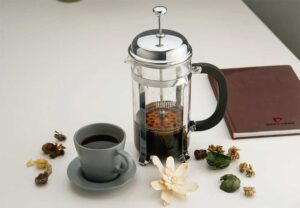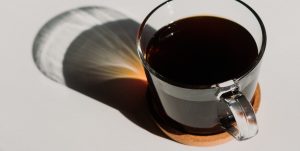Espresso is arguably the choicest coffee, yet the brewing process can be hard to get right. I’ve all angrily poured coffee into the sink at one time or another. If you wonder, “why is my espresso sour,” the answer lies with your brewing method. Once you understand the cause of sour espresso, fixing it is easy.
Contents
Why Is My Espresso Sour?
Your espresso is sour because of under extraction. You have brewed your coffee too quickly and it has not extracted the oily and flavorful compounds from the coffee grounds. This can be due to using too coarse a grind, not enough coffee grounds per brew (although this can also lead to overextraction), or perhaps because you’re tamping too lightly, so water passes through the grounds too quickly.
Coffee is a complex beverage, and when it’s not brewed correctly, the result can be less than delicious. Many factors can affect the taste of your coffee.
- The ideal extraction time for an espresso shot is between 20 and 25 seconds
- This duration can vary depending on your brew method and grind size
- The shorter your brew time, the sourer the coffee

Here are some common causes of sour coffee:
Under Extraction
During the coffee brewing process, sugars, oils, acids, and aromas break from the coffee beans and mix with water to make your espresso. Acids are extracted at the beginning of the process—meaning from the onset, the flavor of your coffee is rather acidic. Thus, your coffee will taste sour when you don’t brew long enough to get the sugars and oils.
Over Extraction
Over extraction is when you brew the coffee for too long. It can also result from using too much coffee, a grind size that is too fine, or too hot water.
Over extraction is a common problem for many coffee drinkers. When you over-extract your coffee, you end up with a bitter brew that tastes more like tar than the sweet, caramel-y beverage you’re used to.
Under Roasted Beans
The bulk of your coffee’s taste comes from the Maillard reaction, a chemical reaction that occurs when food is roasted and turns brown. However, if the coffee beans don’t undergo this chemical change, they will retain a sour taste. So, if you want to make any changes to how your coffee tastes, you will look at how long you roast the beans. If you’re roasting your coffee beans with an air fryer, make sure to always preheat your machine before putting the beans inside.
Stale Coffee Beans
As time goes on, coffee begins to lose its flavor and aroma. It also loses some of its freshness and becomes stale. Degradation can happen quickly if you store coffee at room temperature for more than a few days after it has been roasted or leave it in its packaging for longer than necessary.
The Sour Compounds in Coffee
The sour compounds in coffee are mainly citric, malic, and quinic acids. How and when you harvest impacts the sour compounds in coffee. For example, if you pick cherries too early or too late, you’ll have unripe beans that taste more acidic.
Processing time also impacts the number of sour compounds in coffee. Roasting makes the most significant impact on sourness in coffee because roasting can destroy some of these acid compounds. If you’re looking to reduce the amount of sourness in your cup, choose a lighter roast with less than 20% development time per degree Fahrenheit (dF).

Burnt Taste in Coffee
A cup of espresso can take on a burnt taste due to over-extraction. This can happen when the coffee grounds are left in contact with the water for too long, causing the oils to come out of the beans and make an oily residue on the water’s surface.
The longer you extract, the more bitter your espresso will become. If you have an expensive espresso machine that gives you precise control over your shots, you can use this feature to reduce over-extraction.
Related Questions
How Much Coffee Grounds Do You Use for a Cup of Espresso?
The amount of coffee grounds used in espresso is much smaller than the amount used in drip coffee. The ratio is about 1:15 to 1:20 for an espresso shot, compared to about 1:3 for drip coffee. A typical shot of espresso contains about 1.6 ounces of ground coffee.
How Do You Fix Sour Taste in Coffee?
You can fix the sour taste in coffee by increasing the water used. When you add water, the brew time increases automatically, preventing under-extraction.
Another thing to check is the grind size on your grinder. If the grinds are too fine, they will over-extract and make your coffee bitter; if they’re too coarse, they won’t extract enough flavor from the beans and make your brew taste weak and sour.
Conclusion
Do you want to know, “why is my espresso sour?” Under-extraction is to blame. The art of making the perfect cup of espresso requires practice and experimenting with grind size, ratios, and brew time. Always take note of your results and track each change. You will find the correct numbers that help you achieve great-tasting coffee.



